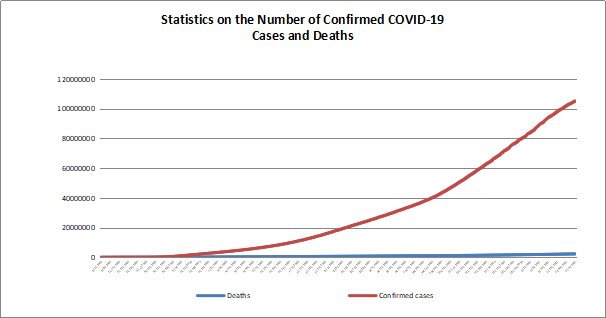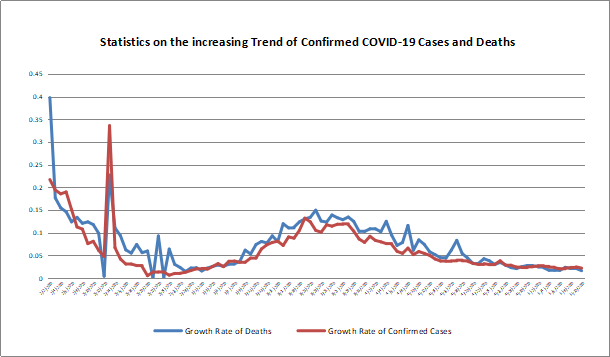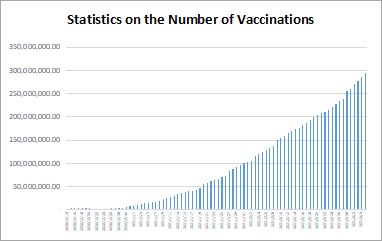WOH and WEF Launched A Joint Publication to Harness “TradeTech” Potential
Time:2022/04/21 BJT
1. Key concerns
The World Trade Organization (WTO) and the World Economic Forum (WEF) launched a joint publication on April 12, 2022, to help TradeTech promise more efficient, inclusive and sustainable trade in the future.
The publication notes that TradeTech such as artificial intelligence (AI), blockchain and distributed ledger technology (DLT) all offer the potential to facilitate trade by improving efficiency, reducing cost and providing great resilience in supply chains. But international policy coordination rules for relevant technologies are required, among which the development of rules trade agreements is especially important to provide legal certainty on the emerging issues related to the digital field.
At the briefing, participants stated that TradeTech significantly facilitates the development of trade. Børge Brende, President of WEF said that new technologies play a vital part in driving trade, especially in bringing data across borders, e-signatures and documents transfer. WTO Director-General Ngozi Okonjo-Iweala believed that advanced technology and trade digitalization has the potential to make trade more inclusive and more efficient. The joint publication will help advance thinking and catalyse action of members to unleash the potential of TradeTech to the benefit of everyone.
The report also hoped that in the future trade agreements will be achieved to develop the legal framework of the above technologies and promote TradeTech to play its constructive role. According to the report, regional or bilateral trade agreements including the United Sates-Mexico-Canada Agreement (USMCA), Singapore-Australia Digital Economy Agreement (SADEA) and the Digital Economy Partnership Agreement (DEPA) have realized the integration between e-commerce and digital trade provisions since 2010. In addition, more than 85 WTO members are participating in the ongoing negotiations of Joint Initiative on E-commerce. Unseized opportunities remain in connectivity, data sharing, e-signatures, digital tokens, and digital identity of legal and physical persons.
According to the report, the reason that trade policies are not well prepared for TradeTech is largely due to the two factors: policies related to those technologies span across different legal departments, regulatory authorities and stakeholders; those issues do not intersect with trade traditionally (e.g. antitrust, data governance, cybersecurity, platform liabilities and digital taxation). To solve existing issues, the report suggests more agile and flexible policies for TradeTech be implemented and nuanced rules be adopted by the principles of forward-looking, openness, proportionality and fairness.
The publication also urges members to actively promote international regulatory cooperation to secure policy coherence as well as strengthening public-private partnerships.
2.Briefing on COVID-19 Pandemic(Issue No.188)
According to WHO statistics, calculated numbers of confirmed COVID-19 cases and deaths reached 497,960,492 and 6,181,850 by April 12, 2022. South Korea, Germany, France, Italy and Australia were the five countries (regions) with the highest number of new confirmed cases in the past seven days. The US, South Korea, Russia, Germany and Brazil were the five countries (regions) with the highest number of new deaths in the past seven days.


https://covid19.who.int/
The World Health Organization (WHO) recently announced to offer free online training courses on its learning platform OpenWHO.org, offering knowledge on the COVID-19 vaccine and other trusted knowledge about immunization to global health workers, decision-makers and the public. Statistics from Our World in Data, an online research site of the University of Oxford, presented that 11,409,402,882 doses had been administered globally by April 11, 2022. On April 7, 2022, to celebrate World Immunization Week and empower health workers, decision-makers, and the public with trusted knowledge about immunization, WHO announced to offer free training courses for people around the world. WHO believed relating knowledge is critical for health workers to safely and efficiently administer vaccines, for leaders from countries (regions) to make scientific-based health policy and for people all over the world to protect their own health and the health of their families. It is reported that the free course comprises two models: COVID-19 vaccine courses and additional immunization topics. In terms of the first model, the courses will focus on the COVID-19 vaccination training for health workers, orientation to national deployment and vaccination planning for COVID-19 vaccines, learning how to use the COVID-19 vaccine introduction and deployment costing tool, how to discover your leadership moment and other COVID-19 vaccine-specific knowledge. For the latter, the courses will involve vaccine safety basics, inequality monitoring in vaccination coverage, influenza prevention and control, and recognizing and managing anaphylaxis and other contents. To promote the dissemination and popularization, the courses are available in national and local languages and can be taken at each learner’s own pace.

https://ourworldindata.org/covid-vaccinations
In terms of the restrictions taken by countries (regions), there are different levels of measures adopted against COVID-19. Most countries (regions) are gradually relaxing their previous pandemic restriction measures to different levels, and gradually rolling out the booster dose of COVID-19 vaccination. In America, the Federal Health Officer of Canada, Winnie Tam, officially announced that the country is in the sixth wave of the outbreak, with an increase in COVID-19 case spreading countrywide. The National Advisory Committee on Immunisation (NACI) strongly recommends that all adolescents aged 12 to 17 years and immunocompromised children be administered a third dose of COVID-19 vaccine. In Europe, The Czech Ministry of Health announced that from April 9 all visitors to the Czech Republic, regardless of their place of departure, will be exempted from any entry quarantine. The Maltese authorities announced that from April 11, travellers with proof of recovery from COVID-19 within 180 days or a negative PCR test within 72 hours will be exempted from additional entry quarantine into Malta. The Finnish government announced that the country will extend its entry restrictions until May 8 and that all travellers will be subjected to the entry quarantine, except those with proof of full vaccination of COVID-19, proof of negative PCR test within 72 hours and proof of coronary heart disease. In Asia, South Korea announced plans to roll out the fourth dose of COVID-19 vaccine to people over 60 years of age. The Japanese Parliament announced that the "denial of entry" measures against 106 countries, including the US, France and the UK, would be lifted from April 8. The National Communicable Disease Committee of Thailand announced on April 12 that the number of days of isolation for high-risk contacts will be reduced from "7 days isolation + 3 days observation" to "5 days isolation + 5 days observation".


